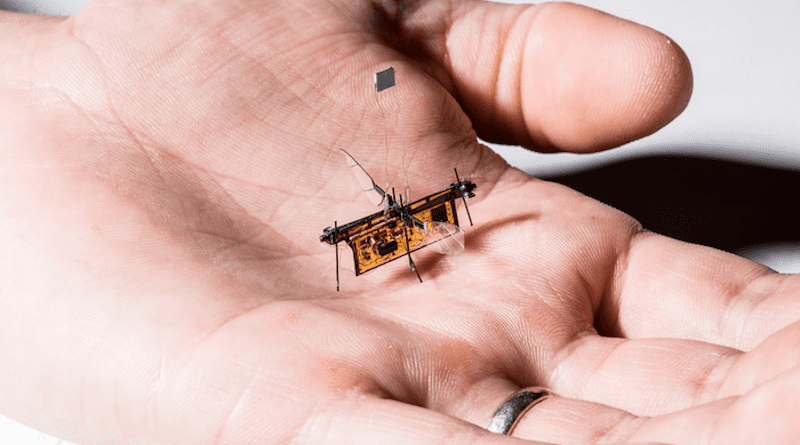Insect-Inspired AI For Autonomous Robots
Small autonomous mobile robots, such as drones, rovers, and legged robots, promise to perform a wide range of tasks, from autonomously monitoring crops in greenhouses to last-kilometer delivery. These applications require robots to operate for extended periods while performing complex tasks, often in unknown, changing, and complicated environments.
In an article published in Science Robotics, researchers from Delft University of Technology, the University of Washington and the University of Sheffield argue that one should draw inspiration from insects when creating the AI for small, autonomous robots. Insect intelligence is characterized by its minimalistic yet robust solutions. They use these to behave successfully in complex, dynamic environments.
In the article, the researchers explain governing principles that underly the efficiency and robustness of insect intelligence. They also give an overview of existing robotics research that has leveraged these principles and identify challenges and opportunities ahead. In particular, advances in biology and technology allow for more fine-grained investigations of insect brains.
Moreover, progress in sensing and computing hardware will enable robots to approach the energy efficiency and speed of insect sensing and neural processing. These developments accelerate the creation of insect-inspired AI for autonomous robots, leading to start-ups in this field.

